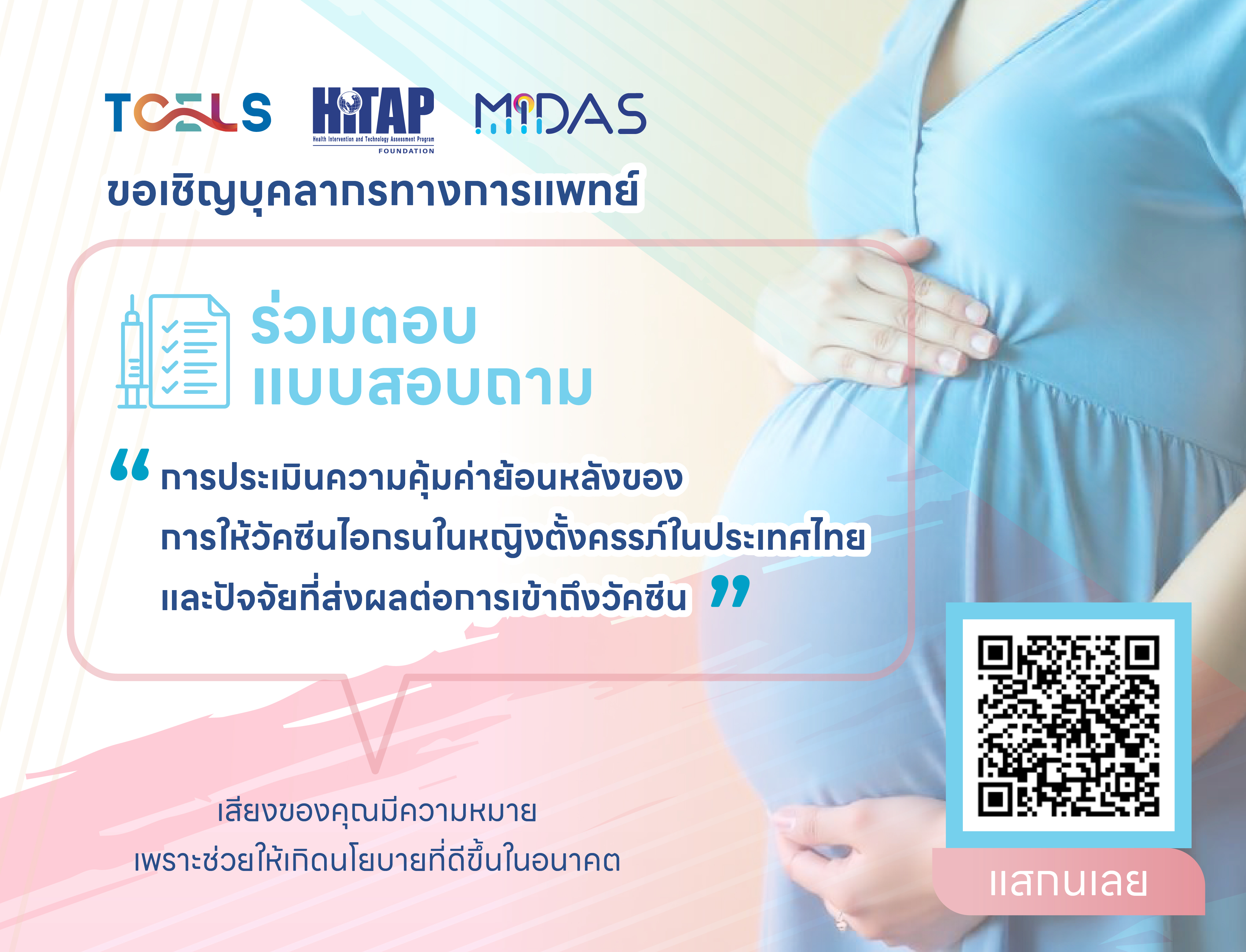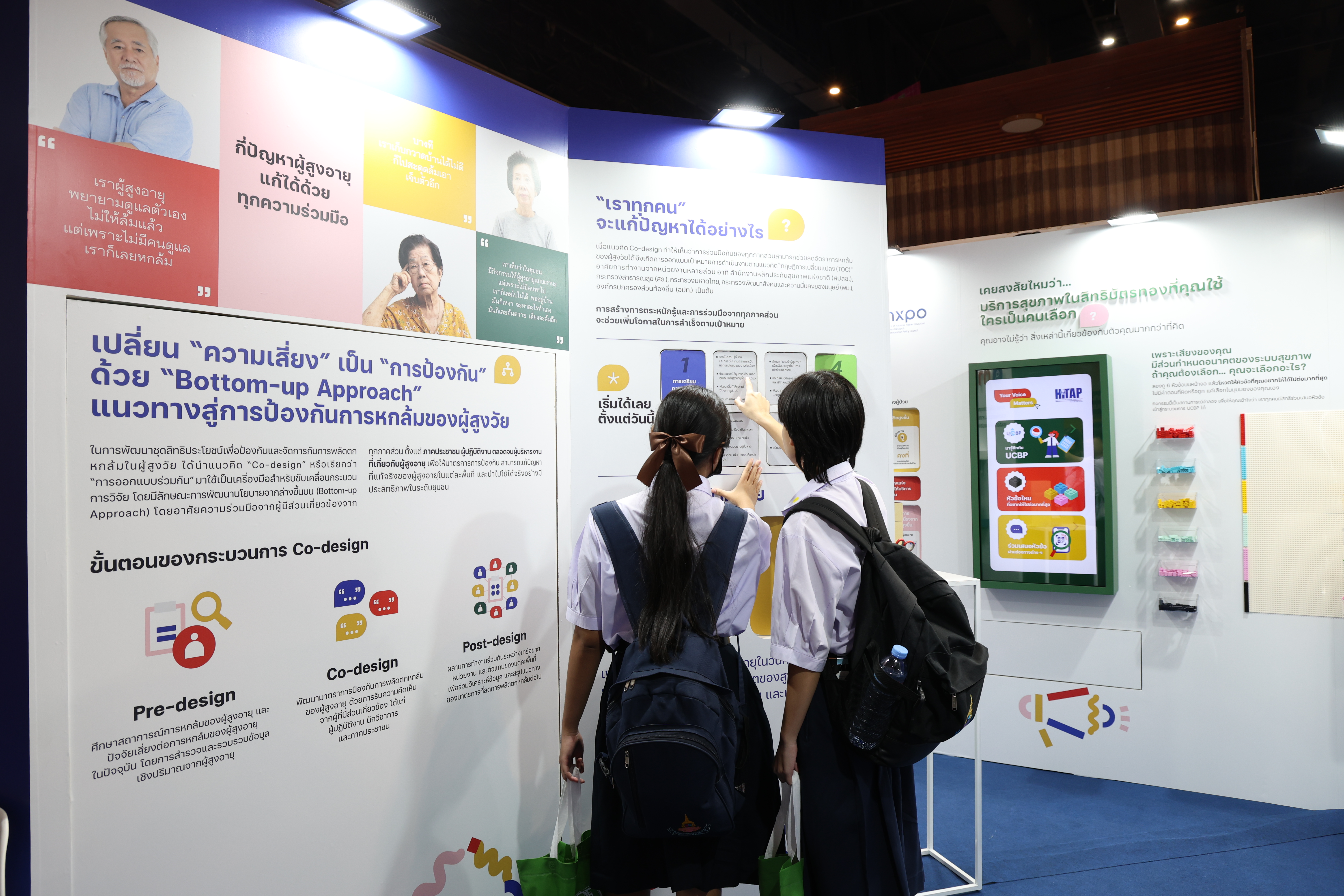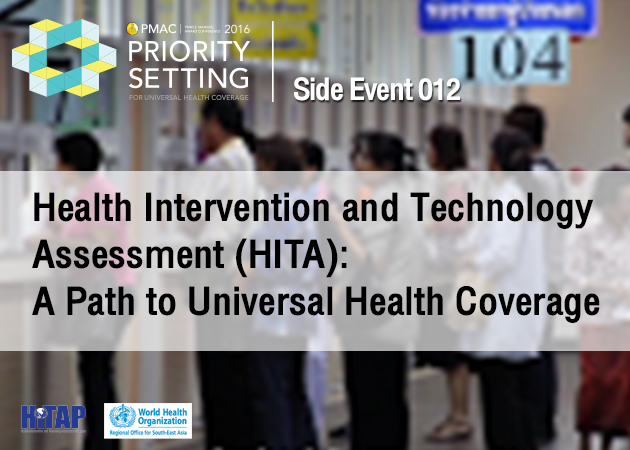ขอเชิญบุคลากรทางการแพทย์ร่วมตอบแบบสอบถาม “การประเมินความคุ้มค่าย้อนหลังของการให้วัคซีนไอกรนในหญิงตั้งครรภ์ในประเทศไทย และปัจจัยที่ส่งผลต่อการเข้าถึงวัคซีน”




PMAC 2016 Side Event (SE 012): Health Intervention and Technology Assessment (HITA): A Path to Universal Health Coverage (UHC)
Given the global push to implement UHC, the importance of using evidence, namely health intervention and technology assessments (HITA), in governments’ decision making process for healthcare is becoming more and more apparent. In response, the WHO Regional Office of Southeast Asia (SEARO) conducted HITA country case studies in Indonesia, Sri Lanka, and Nepal. This side meeting brings together various stakeholders in SEAR to share the findings from the studies and lessons learned.
Speakers and moderators:
Date: January 26, 2016, 9:00 – 13:00 hrs.
Place: World Ballroom B, Floor 22, Centara Grand & Bangkok Convention Center, Bangkok
Type: Open to all PMAC participants
Background:
Governments in low- and middle-income countries (LMICs) are committing to universal healthcare coverage (UHC) with the aim to attain equitable access to essential healthcare, improve population health, and ensure financial protection. One of the major challenges to achieving UHC is the lack of evidence for policy making.
This evidence is generated through health intervention and technology assessments (HITA), which WHO defines as “the systematic evaluation of properties, effects, and/or impacts of health technology. It is a multidisciplinary process to evaluate the social, economic, organizational and ethical issues of a health intervention or health technology. The main purpose of conducting an assessment is to inform a policy decision making. Considering the definition of health technology, as the application of organized knowledge and skills in the form of medicines, medical devices, vaccines, procedures and systems developed to solve a health problem and improve quality of life.”
The World Health Assembly (WHA) Resolution 67.23 and the Southeast Asia Regional Committees Resolution SEA/RC66/R4 urges countries to conduct HITA as part of their plan towards UHC. However, capacity to conduct HITA in LMICs is limited and this inhibits the progression toward achieving UHC. Apart from the capacity to generate evidence, it is also important that policy relevant studies are conducted in a transparent and participatory manner. This ensures that the studies are trusted by and acceptable to decision makers.
In response to these issues, the SEAR regional office conducted three country initiatives in the region to begin the development of effective priority-setting institutions and building capacity for conducting HITA. This panel session will bring together policymakers, practitioners from HITA organizations in SEAR as well as other LMICs, and relevant national and international stakeholders to share the findings from the studies and lessons learned. Through this, capacity development and HITA to support UHC can be explored for other regions and countries as well.
Objective:
This meeting aims to discuss HITA studies done for certain WHO countries in Asia, as well as lessons learned in conducting these studies and development of HITA capacity not just in the region but globally. The discussions will also encourage all participants to share ideas and experiences in building up technical and/or policy capacity in using HITA, both successes and failures, at sub-national, national, and international levels.
Expected output/outcome:
Participants will gain further knowledge of HITA development in Asia, as well as ways forward and potential areas of collaboration, improvement, and work. The expected outcome of the discussion will include recommendations and suggestions regarding the best practice for HITA capacity development.
Target participants and estimated number of participants:
50-100 participants, partners, and others involved in HTA capacity development in the SEAR and other LMICs
Number of speakers: 10
Organizer and contact details:
Health Intervention and Technology Assessment Program (HITAP)
6th Floor, 6th Building, Department of Health, Ministry of Public Health, Tiwanon Rd., Muang, Nonthaburi 11000, Thailand Tel : +662-590-4549, +662-590-4374-5 Fax : +662-590-4369
Contact persons: Alia Luz ([email protected]) and Nattha Tritasavit ([email protected])
| Agenda of PMAC SE012 HITA SEARO | 15 กันยายน 2025 | Download |